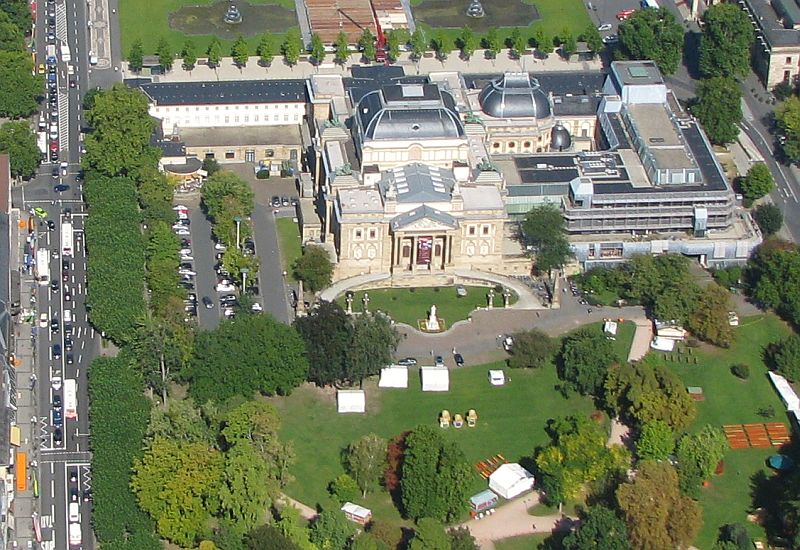|
Die Stadt Hinter Dem Strom
''Die Stadt hinter dem Strom'' (The city beyond the river) is a German language Existentialism, existentialist novel by Hermann Kasack, published in 1947 in Berlin. It is considered one of the most important novels written in Germany after World War II, dealing with the horrors of Nazi Germany, along with works such as Thomas Mann's ''Doctor Faustus (Thomas Mann novel), Doctor Faustus'' and Günter Grass' ''The Tin Drum''. History Hermann Kasack described a "Schreckensvision" (horror vision) initiating the writing of the novel: "'Ich sah die Flächen einer gespenstischen Ruinenstadt, die sich ins Unendliche verlor und in der sich die Menschen wie Scharen von gefangenen Puppen bewegten." (I saw a vast ruined city, extending endlessly, in which people moved about like imprisoned puppets). Kasack wrote the novel in two periods, first during the war from 1942 to 1944, then after the war in 1946. Kasack had not left Nazi Germany, but remained in what was later described as "Innere Emigr ... [...More Info...] [...Related Items...] OR: [Wikipedia] [Google] [Baidu] |
Hermann Kasack
Hermann Robert Richard Eugen Kasack (24 July 1896 – 10 January 1966) was a German writer. He is best known for his novel '' Die Stadt hinter dem Strom'' (''The city beyond the river''). Kasack was a pioneer of using the medium broadcast for literature. He published radio plays also under the pen names Hermann Wilhelm and Hermann Merten. Career Kasack was born in Potsdam as the only child of a doctor, he studied from 1914 to 1920 national economics and history of literature at the Humboldt-Universität zu Berlin.Hermann Kasack / 1896–1966 / Biographie from ''Hermann Kasack: Fälschungen. Erzählungen. Frankfurt am Main: Suhrkamp, 1975'', |
Hessisches Staatstheater Wiesbaden
The Hessisches Staatstheater Wiesbaden ('Hessian State Theatre Wiesbaden') is a German theatre located in Wiesbaden, in the German state Hesse. The company produces operas, plays, ballets, musicals and concerts on four stages. Known also as the Staatstheater Wiesbaden or ''Theater Wiesbaden'', its orchestra is the Hessisches Staatsorchester. The building was inaugurated in 1894. The theatre is the host for the annual festival Internationale Maifestspiele Wiesbaden, established in 1896 after the Bayreuth Festival. History The building of the theatre was initiated and substantially supported by the German emperor William II who regularly visited the spa in Wiesbaden. A team of architects from Vienna, Ferdinand Fellner and Hermann Helmer, won the competition. They constructed the building from 1892 to 1894 in Baroque Revival style, following models in Prague and Zurich. The inauguration was on 16 October 1894 in the presence of the emperor. The Foyer was built in 1902 by archi ... [...More Info...] [...Related Items...] OR: [Wikipedia] [Google] [Baidu] |
1947 German Novels
It was the first year of the Cold War, which would last until 1991, ending with the dissolution of the Soviet Union. Events January * January–February – Winter of 1946–47 in the United Kingdom: The worst snowfall in the country in the 20th century causes extensive disruption of travel. Given the low ratio of private vehicle ownership at the time, it is mainly remembered in terms of its effects on the railway network. * January 1 - The Canadian Citizenship Act comes into effect. * January 4 – First issue of weekly magazine ''Der Spiegel'' published in Hanover, Germany, edited by Rudolf Augstein. * January 10 – The United Nations adopts a resolution to take control of the free city of Trieste. * January 15 – Elizabeth Short, an aspiring actress nicknamed the "Black Dahlia", is found brutally murdered in a vacant lot in Los Angeles; the mysterious case is never solved. * January 16 – Vincent Auriol is inaugurated as president of France. * January 19 – Ferry ... [...More Info...] [...Related Items...] OR: [Wikipedia] [Google] [Baidu] |

